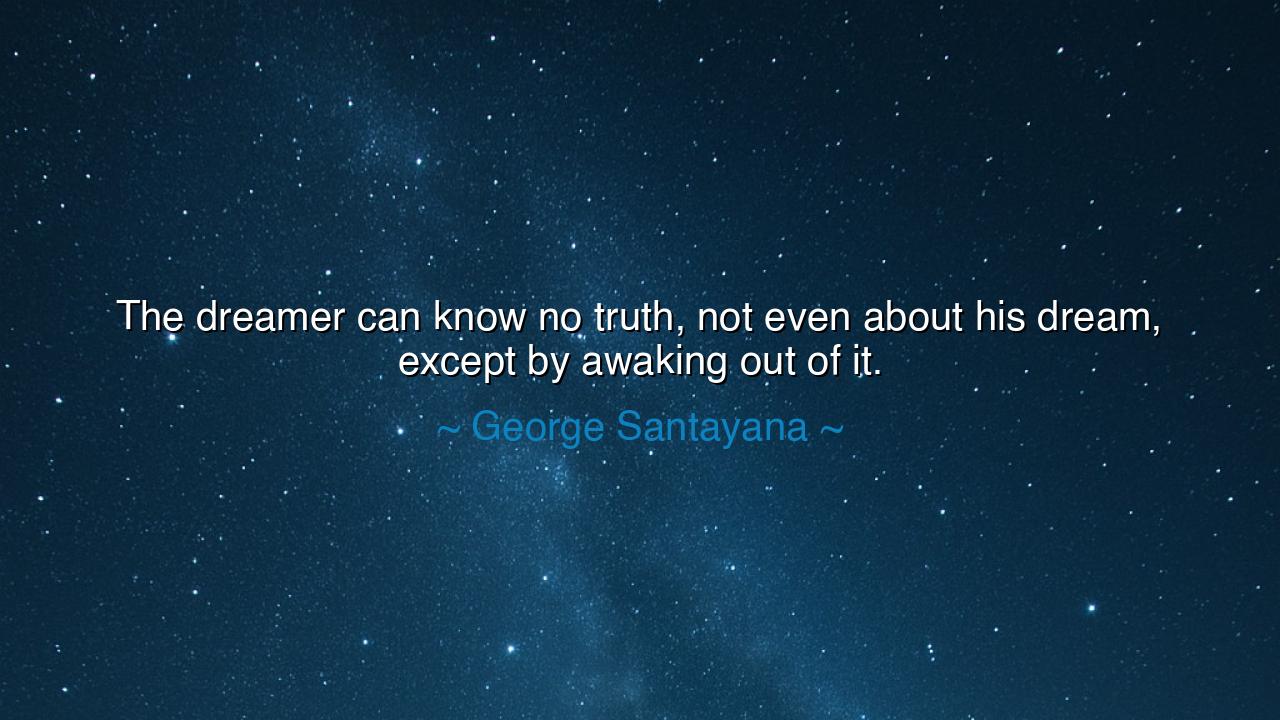
The dreamer can know no truth, not even about his dream, except






When the philosopher George Santayana wrote, “The dreamer can know no truth, not even about his dream, except by awaking out of it,” he spoke of the eternal struggle between illusion and enlightenment—the awakening of the human soul from the shadows of its own creation. He reminds us that one cannot see clearly while still lost in the fog of illusion, no matter how beautiful that illusion may be. To dream is to live within the walls of perception, but to awake is to step beyond them, into the cold and luminous air of truth. This is not merely a statement about sleep, but a revelation about life itself: that we are all, at times, dreamers, wandering through the landscapes of our desires, fears, and false beliefs, until the pain of untruth forces us to wake.
The meaning of Santayana’s words reaches into the heart of philosophy and the soul of man. Every age has its dream—nations dream of glory, lovers dream of eternity, individuals dream of happiness that never fades. Yet while we live within these dreams, we cannot see their boundaries. Only when they dissolve do we understand what they were. The dreamer, while dreaming, mistakes illusion for reality; it is only upon awakening that he perceives how his mind shaped the world he thought was fixed and true. Thus, the philosopher teaches that self-knowledge requires awakening—a breaking of the spell that binds us to comfort, ignorance, or pride.
In ancient wisdom, this idea echoes across the ages. The Buddha taught that mankind lives in maya, the grand illusion—that we chase shadows thinking them substance, and suffer because we do not see clearly. Like Santayana, he called his followers to awake—to see things as they truly are, not as the dream paints them. The truth cannot be found in the dream, no matter how splendid it seems. It is only by stepping outside of it, by questioning it, by standing apart from our own assumptions, that we begin to grasp reality. The act of awakening is painful, for the light burns the eyes accustomed to darkness—but it is also the beginning of wisdom.
Consider the life of Galileo Galilei, the man who dared to awaken humanity from one of its longest dreams. For centuries, the world dreamed that the Earth stood at the center of all creation, unmoving, surrounded by heavenly spheres. It was a comforting vision—beautiful, ordered, divine. Yet it was a dream. When Galileo looked through his telescope and saw the moons of Jupiter and the phases of Venus, he began to awake. The truth, once revealed, shattered the illusion of the ages. But like all dreamers startled from slumber, the world resisted awakening






AAdministratorAdministrator
Welcome, honored guests. Please leave a comment, we will respond soon